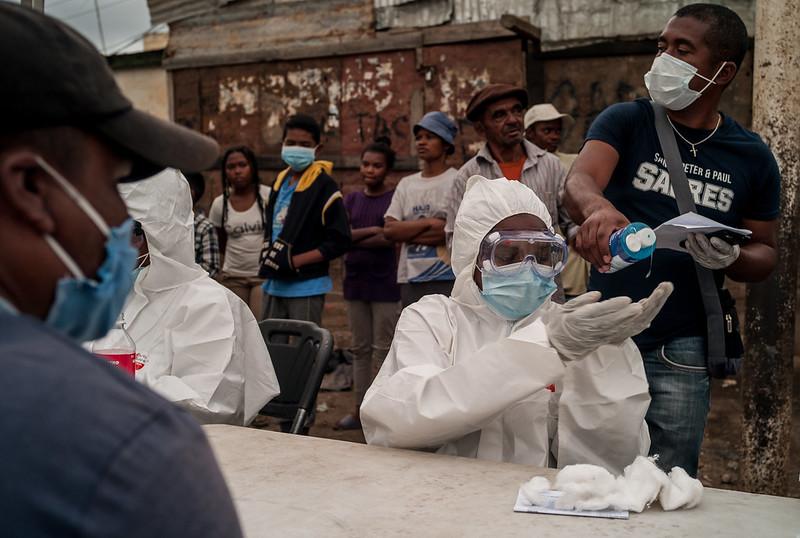Smallholder Farmers Are Increasingly at Risk As COVID-19 Pandemic Continues

At the time of writing, disruptions on food production, agricultural supply chains and markets have not been materialized; however, the pandemic is directly affecting food systems through impact on food supply and demand, and indirectly through decreases in purchasing power as well as logistical barriers and trade blockages.
Learning from past pandemic, for instance during the 2014 Ebola crisis, lockdowns in West Africa had several negative impacts on farmers’ livelihoods including curbing access to markets both for input purchase and produce sale as well as reducing the availability of seasonal labor, which resulted in income loss and post-harvest food waste. In Liberia, 47% of farmers reported that they were unable to cultivate farmland due to the outbreak.[1] Ebola-affected families faced below-average harvests and incomes as a result of quarantines and social stigma. In hard-hit countries – Guinea, Liberia, and Sierra Leone –, movement restriction also disrupted markets and led to panic buying and food scarcity[2]. In Sierra Leone, quarantines and panic during the disease outbreak led to a spike in hunger and malnutrition[3]. While health needs are an urgent and primary concern in the pandemic, livelihoods or food security aspects cannot be neglected.
The potential impact of COVID-19 on smallholder farmers? Compared to other continents, in Africa and in Southeast Asia at the moment, the infection and fatality rates from the virus are small, albeit slowly growing. Farmers who remain heavily reliant on commodity exports (e.g. cocoa, cotton and coffee as well as horticulture, livestock and niche products) could be impacted by border shutdowns and potentially diminishing demand of the high-value commodities, perishable products, in importing countries. In Sub-Saharan Africa, many local agri-food supply chains are already experiencing disruptions, including reduced access to inputs and services, labor movement, transport and roadblocks, and credit or liquidity.[4] Furthermore, limited access to food due to shortages, rising food prices (staples such as wheat and rice) in some places and curtailed incomes could worsen food insecurity in many developing countries. Smallholder farmers in the rural areas of those countries are disproportionately at risk of food insecurity. Recent analysis from WFP listed high risk countries including highly export-dependent Angola, Nigeria and Chad, and highly import-dependent Somalia and South Sudan as well as Yemen, Iran, Iraq, Lebanon and Syria in Middle East.[5]
FAO Chief Economist Maximo Torero Cullen suggested several measures to protect the smallholder farmers include temporary cash handouts and grants to restart production, improved access to microfinance (e.g. fee waiver and payment deadline extension) and purchasing agricultural products from small farmers to establish strategic emergency reserves for humanitarian purposes.[6]
Given the fact that many countries are already undergoing economic and social hardships (e.g. a locust invasion severely disrupting agricultural production in several African countries, prolonged conflicts in the Middle East), the additional burden of the COVID-19 on the livelihoods of smallholder farmers necessitate prompt response to mitigate the compound risks for this vulnerable group.
In addition, the World Bank has also activated Crisis and Disaster Risk Finance (CDRF) related instruments as a response for COVID 19 through Catastrophe-Deferred Drawdown Options (CAT-DDO’s), please visit here.
[1] FAO (2020): Addressing the COVID-19 in food crisis
[2] UN ECA (2014): Ebola disruption could spark new food crisis
[3] OCHA (2014): Ebola in West Africa
[4] WBG (2020): Africa Pulse April Issue
[5] WFO (2020): COVID-19 -Potential impact on the world’s poorest people
[6] FAO (2020): A battle plan for ensuring global food supplies during the COVID-19 crisis
